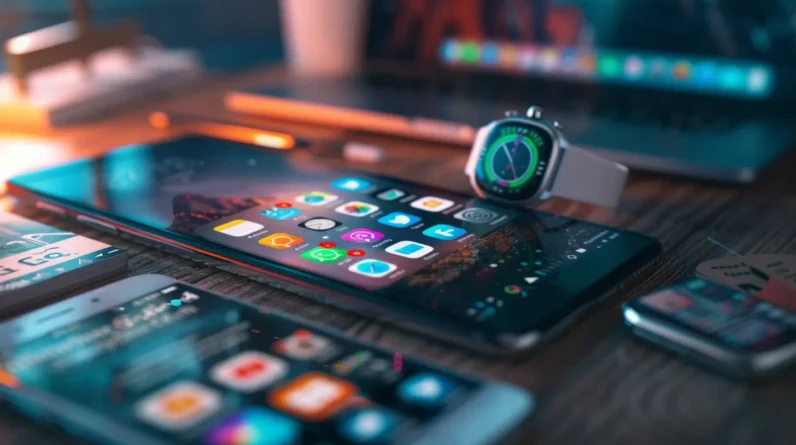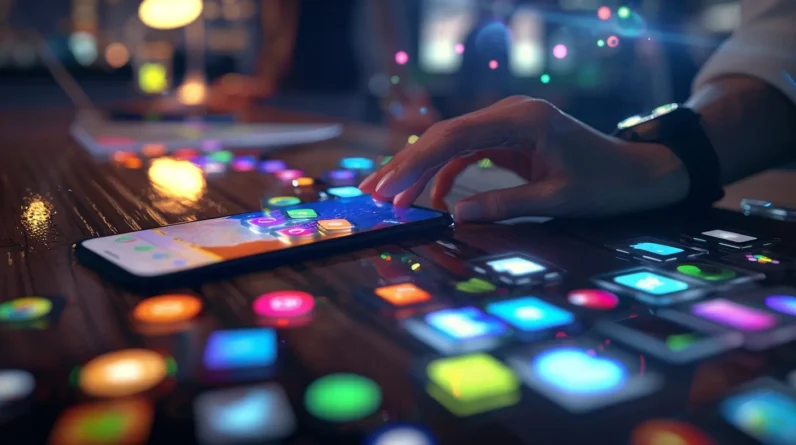
Smart devices are a double-edged sword, influencing our mental health, social interactions, productivity, and physical well-being. They provide access to helpful resources like meditation apps but can also lead to increased stress and anxiety. Instant connectivity can disrupt face-to-face relationships, eroding depth. While tools like calendars enhance productivity, constant distractions decrease focus. Sedentary lifestyles due to prolonged device use impact physical health. Finding the balance between benefits and drawbacks is essential.
Impact on Mental Health
Smart devices have undeniably altered the landscape of mental health, both positively and negatively, by influencing our behavior and emotional well-being. On one hand, these devices provide access to mental health resources, such as meditation apps and mood trackers, which can enhance self-awareness and coping mechanisms.
However, the constant connectivity and notifications can lead to increased stress, anxiety, and decreased attention spans. The addictive nature of smartphones and social media platforms can also contribute to feelings of loneliness and inadequacy.
It’s essential for individuals to strike a balance in their usage, setting boundaries to protect their mental well-being. Understanding the impact of smart devices on mental health is vital in maneuvering the digital world responsibly.
Social Relationships and Connectivity
Frequently overlooked amidst the allure of connectivity, the impact of smart devices on our social relationships warrants critical examination. While these devices offer instant connection to others, they also pose significant challenges. The constant notifications and distractions can disrupt face-to-face interactions, leading to a decline in meaningful conversations and genuine connections.
Over-reliance on digital communication may erode the depth of our relationships, as nuances and emotions can be lost in text messages or social media interactions. Moreover, the pressure to constantly be available online can lead to feelings of isolation and anxiety when disconnected.
It’s essential to strike a balance between digital and in-person interactions to maintain healthy and fulfilling relationships in this technology-driven world.
Productivity and Time Management
Moreover, in today’s fast-paced world, the impact of smart devices on productivity and time management is a subject that demands careful consideration and scrutiny.
While these devices offer tools like calendars, reminders, and task lists to enhance organization, their constant notifications and easy access to distractions can lead to decreased focus and efficiency. The temptation to constantly check messages, social media, or news feeds can disrupt workflow and hinder concentration on important tasks.
Furthermore, the blurring of boundaries between work and personal life facilitated by smart devices can lead to longer work hours and increased stress, ultimately affecting overall productivity.
It’s essential for individuals to be mindful of how they utilize these devices to strike a balance that optimizes productivity and time management.
Physical Health and Well-being
Our dependence on smart devices has greatly impacted our physical health and well-being, raising concerns about the long-term consequences of our technology-driven lifestyles. While these devices offer convenience and connectivity, they also present challenges to our overall health.
– Sedentary Lifestyle: Spending prolonged hours on devices often leads to a decrease in physical activity, contributing to issues like obesity and muscle stiffness.
– Disrupted Sleep Patterns: The blue light emitted by screens can disrupt our circadian rhythms, leading to poor sleep quality and potential long-term health effects.
– Posture Problems: Constantly hunching over screens can result in neck and back pain, affecting our posture and musculoskeletal health.
It is essential to strike a balance between the benefits of smart devices and the maintenance of our physical well-being.
Conclusion
In the end, smart devices are like double-edged swords, offering convenience and connectivity while also potentially harming our mental, physical, and social well-being.
Like the glowing screens that captivate us, these devices hold both the light of opportunity and the shadows of distraction.
It’s up to us to strike a balance and wield these tools wisely, ensuring that we harness their power for our benefit rather than our detriment.







